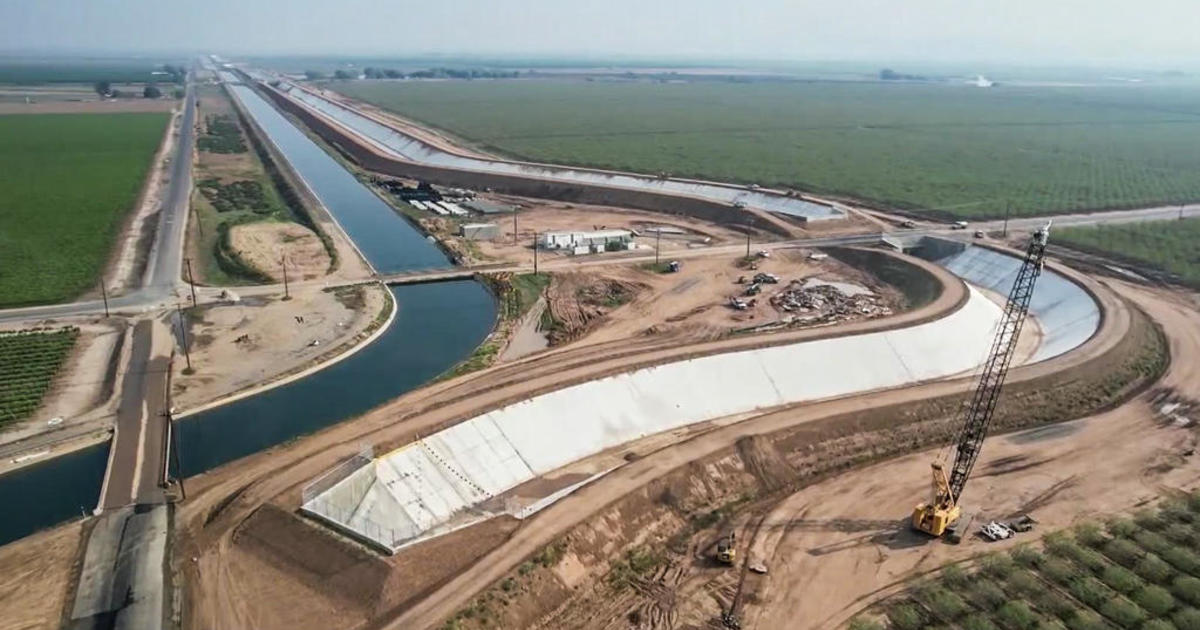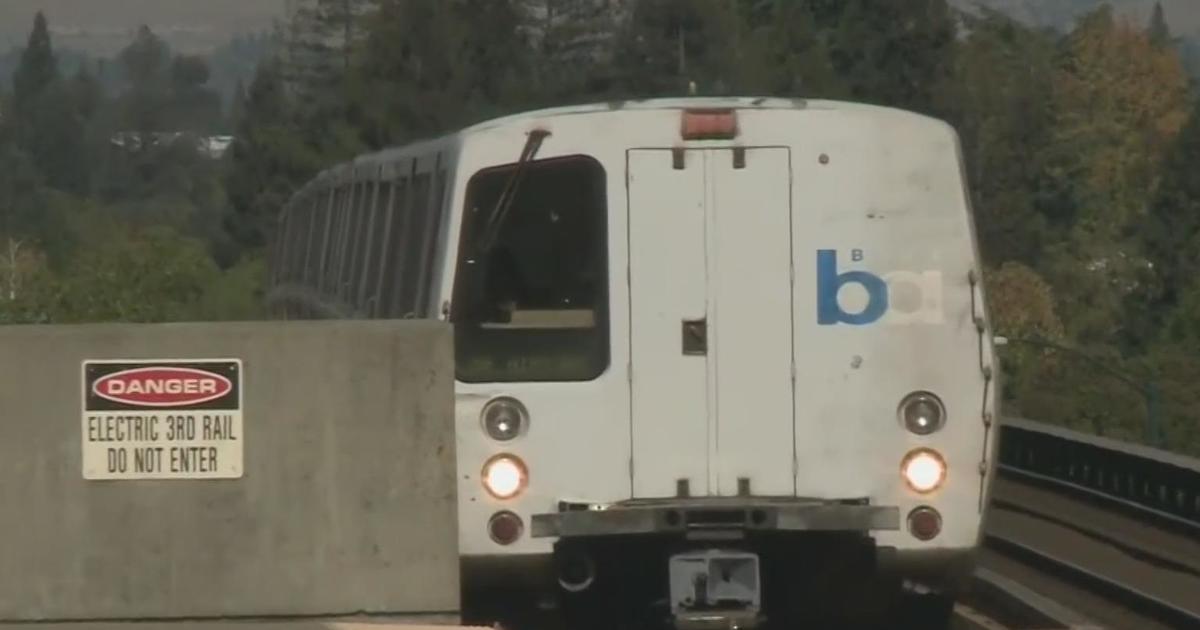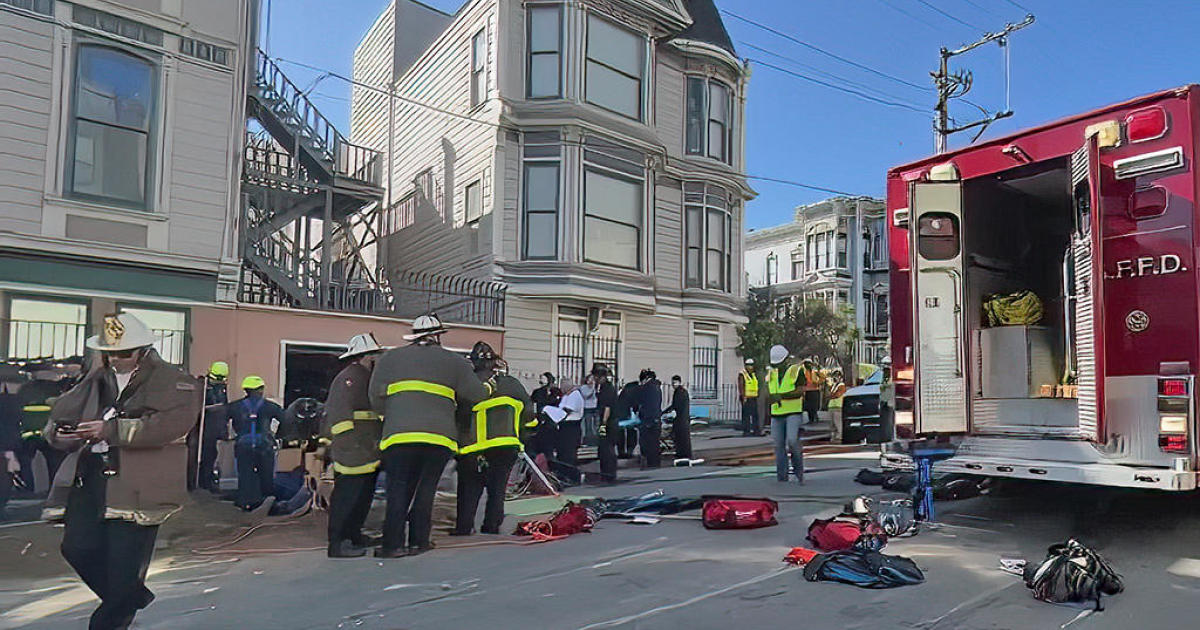High Speed Rail Construction Through Central Valley At 'Turning Point', Executive Says
SACRAMENTO (CBS SF) – The construction of California's high-speed rail system is at a "turning point" as a stretch of the project through the Central Valley is on track for completion in the next few years, the project's chief executive said Tuesday.
A 119-mile stretch of the rail system that will eventually span some 500 miles is currently being constructed in the Central Valley, with the first segment set to be completed in the next year, according to California High-Speed Rail Authority CEO Brian Kelly, who spoke at a panel discussion hosted by the Bay Area Council business group.
Kelly said the 119-mile stretch from Madera to Wasco that is currently being constructed will then be extended to include Merced and Bakersfield.
That 175-mile section of the project is on track to be operational by the end of the decade, Kelly said. Rail service would then slowly expand to the system's end terminals in San Francisco and Anaheim.
"I see us at the turning point of real important advancement," he said.
Kelly said environmental reports have been approved for roughly 300 miles of the system and approval for an additional 130 miles are expected by this summer.
The project was kick-started in 2008 when voters approved a $9.95 billion bond measure to support high-speed rail across the state, which was initially projected to cost roughly $30 billion and be completed by 2030.
Since then, the price tag has soared north of $100 billion, and High-Speed Rail Authority officials have yet to outline where most of the funding will come from to complete the first phase connecting San Francisco and Anaheim, let alone a second phase that would add connections between Merced and Sacramento and Los Angeles and San Diego.
Former U.S. Transportation Secretary Ray LaHood said Tuesday that some funding for the project could be included in a forthcoming federal infrastructure bill.
LaHood, who co-chairs the U.S. High-Speed Rail Coalition of business and labor groups in support of high-speed rail systems across the country, said his group has advocated for the inclusion of $10 billion for high-speed rail projects in a future federal infrastructure funding package.
Federal legislators also allocated $36 billion for high-speed rail in a $1.2 trillion infrastructure funding package that President Joe Biden signed in November.
"You are about as well-positioned as any state in the country to receive significant federal dollars," LaHood said to the panelists.
Darlene Gee, senior vice president of the infrastructure design firm HNTB, compared the high-speed rail project to the construction of the Golden Gate Bridge, which spent nearly two decades in design and development before construction was completed in 1937.
"Transformative infrastructure has always been fraught with huge challenges, challenges that people forget once it's all done," Gee said.
The bridge cost roughly $35 million, equivalent to more than $750 million when accounting for inflation, and was completed ahead of schedule and $1.3 million under budget, according to the U.S. Department of Transportation.
Kelly argued that while the project has faced well-documented challenges since 2008, the economic and environmental potential of a high-speed rail connection across the state remains "immense."
"There's all kinds of opportunity here and before us, and we should not turn back," he said. "This is the right investment for the future of California."
© Copyright 2022 CBS Broadcasting Inc. and Bay City News Service. All Rights Reserved. This material may not be published, broadcast, rewritten or redistributed.



